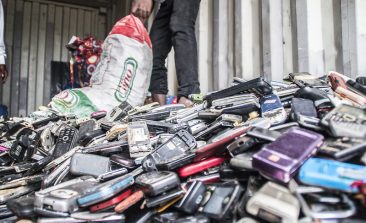Content to: Repair
The Global Environmental E-Waste Problem: What Can You Do About It?
E-waste is the world's fastest growing waste mountain. But there are ways to stop this development.
E-waste is the world's fastest growing waste mountain. But there are ways to stop this development.
| Cookie | Duration | Description |
|---|---|---|
| cookielawinfo-checkbox-analytics | 11 months | This cookie is set by GDPR Cookie Consent plugin. The cookie is used to store the user consent for the cookies in the category "Analytics". |
| cookielawinfo-checkbox-functional | 11 months | The cookie is set by GDPR cookie consent to record the user consent for the cookies in the category "Functional". |
| cookielawinfo-checkbox-necessary | 11 months | This cookie is set by GDPR Cookie Consent plugin. The cookies is used to store the user consent for the cookies in the category "Necessary". |
| cookielawinfo-checkbox-others | 11 months | This cookie is set by GDPR Cookie Consent plugin. The cookie is used to store the user consent for the cookies in the category "Other. |
| cookielawinfo-checkbox-performance | 11 months | This cookie is set by GDPR Cookie Consent plugin. The cookie is used to store the user consent for the cookies in the category "Performance". |
| viewed_cookie_policy | 11 months | The cookie is set by the GDPR Cookie Consent plugin and is used to store whether or not user has consented to the use of cookies. It does not store any personal data. |
Carefully researched content exploring solutions for the major challenges of our time: Behind RESET there’s a dedicated team of writers. All of our content is independent, open-access and completely free of advertising and sponsored links.
In order for it to stay that way, dear readers, we need your help. Whether you give five euro or fifty – every donation makes a difference!
